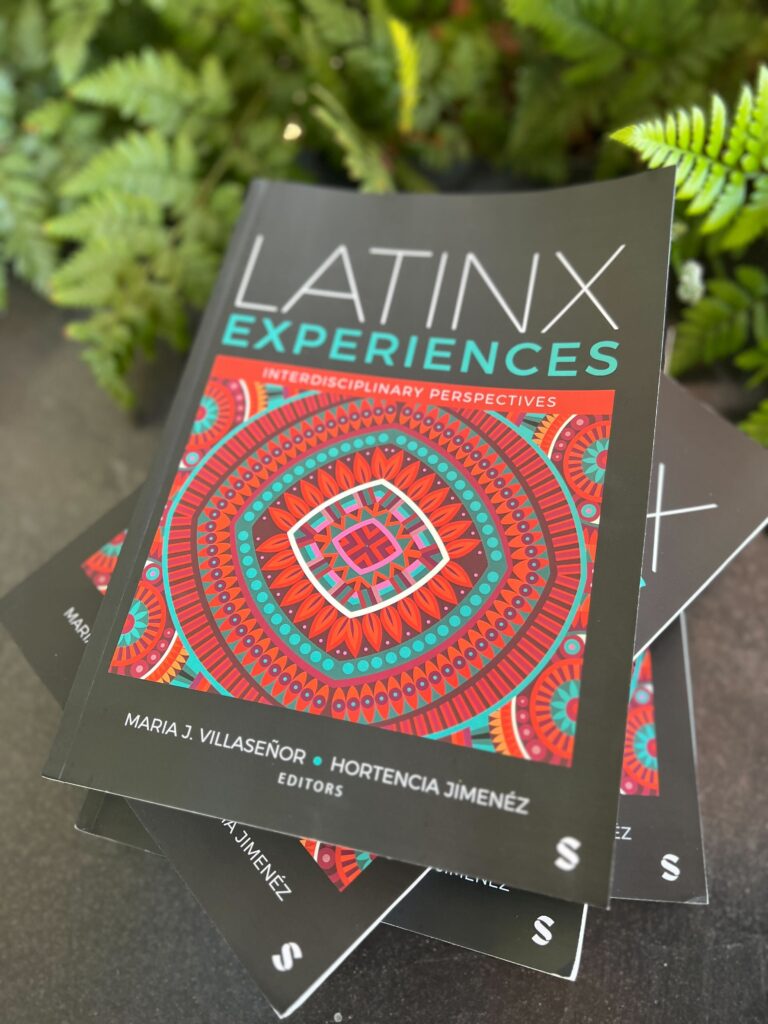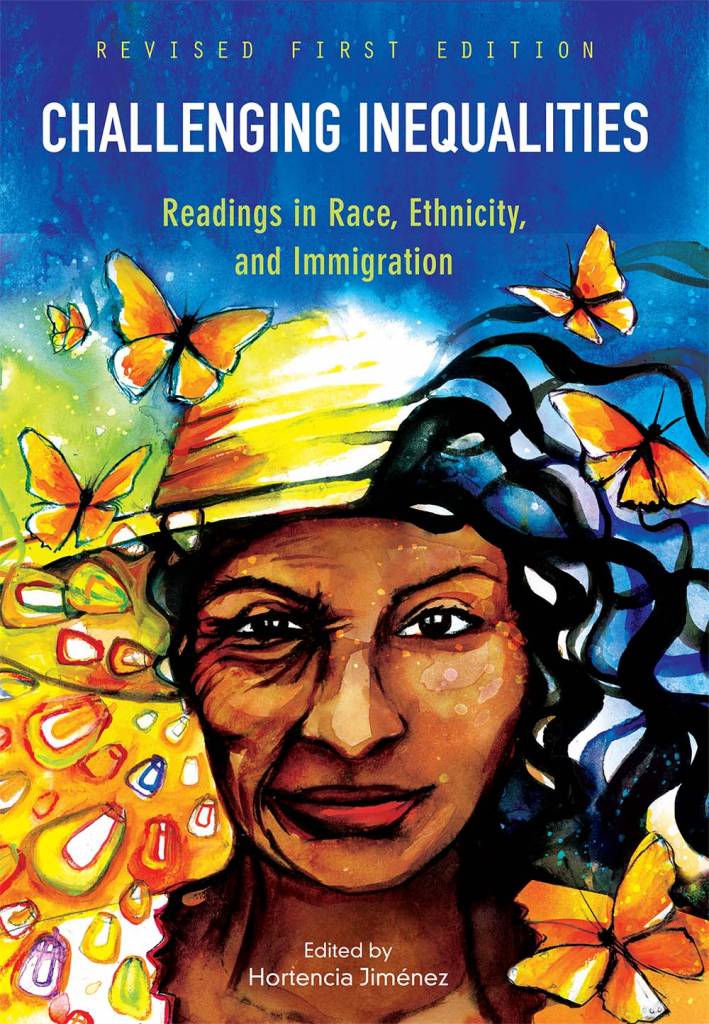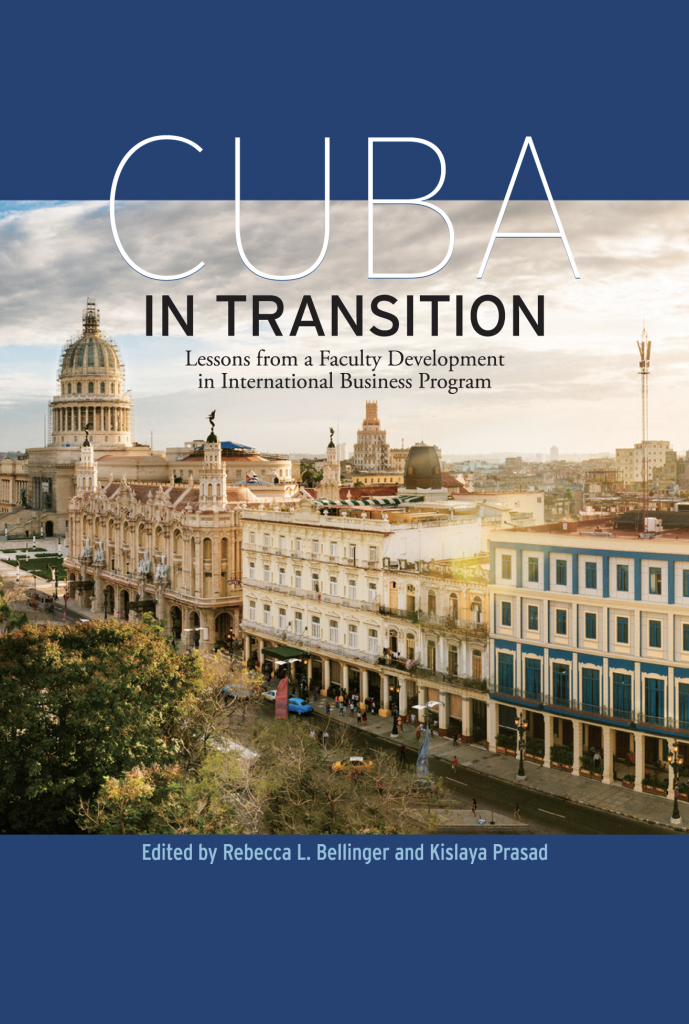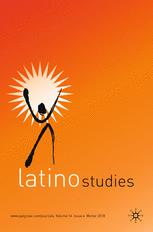Some of Dr. Hortencia Jiménez’s Work






Latinxs at the Intersections: An Interdisciplinary Reader
Dr. Hortencia Jiménez second book project will be an undergraduate book on Latinxs, an interdisciplinary collaboration with Dr. Maria Joaquina Villaseñor, professor of Chicanx-Latinx Studies at California State University, Monterey Bay. Latinxs at the Intersections: An Interdisciplinary Reader gives an overview of critical issues in Latinx Studies with a focus on communities and the shifting contours of Latinx identities. While this volume centers primarily on the U.S. context, it includes global, transnational, and international perspectives. We employ an interdisciplinary perspective to examine the myryad, and complex experiences of Latinxs. The chapters from this book draws from scholars in the fields of Sociology, Latinx Studies, Ethnic Studies, Communications, History, Anthropology, Immigration and Disapora Studies, and Education. Although this book is scholarly in nature, it is broadly accessible to a wide range of audiences. We highlight the heterogeneity and complexity of Latinx identities and experiences. In order to do so, we draw from a range of scholarly perspectives, as well as capturing human stories not only of hardship and challenges, but of success, joy, and resistance. Although there are a plethora of books in Latinx Studies, many have included gender, sexuality, and other salient identity categories as ancillary considerations, this book moves away from this by making intersectional analysis central to the book. As such, all chapters include intersectional analysis that does away with the compartmentalized approach that has historically been the norm.
Latinxs at the Intersections will be of particular interest to scholars in the field of Latinx Studies, Sociology, Ethnic Studies, Legal Studies, and History. Equally, Latinxs at the Intersections will be useful for professors teaching undergraduate lower and upper division courses on Latinxs. The breadth of the book makes it appropriate for undergraduate survey courses, and practitioners working with Latinx communities.[/vc_column_text][/trx_section][trx_section top=”medium” bottom=”small-“][trx_title type=”5”]Research on Student Parents[/trx_title]
About 45% of student parents are enrolled in public two-year institutions, while 16% attend public four-year schools. The majority of student parents who are matriculated at community colleges are mothers of color: black mothers compromise 53.7%, Latina mothers 40%, and American Indian mothers 40.1%. They are also low-income, work full-time, need childcare, and graduate with high debt. A 2013 report published by the American Association of University Women (AAUW) found that the lack of on-campus child care prevents many community college student mothers from reaching their educational goals. Only 26% of two-year student parents attain a degree or certificate in six years.
In college campuses, the parenting status of student parents is not recognized as an important part of their identities and experiences. As a result, student parents, particularly Latina student mothers, have received scant attention in the academic literature on the community college student experience. To this end, Dr. Hortencia Jiménez and Dr. Nereida Oliva, Ethnic Studies Professor have been conducting focus groups interviews with student parents at Pacific Coast Community College (pseudonym) for the past two summers. Their preliminary research has been published in the Association of Mexican American Educators Journal special issue Latinx and the Community College: Promoting Pathways to Postsecondary Degrees. Their research provides insights into the experiences of Latina community college students who are mothers. Using Chicana feminist theory as their theoretical framework, the authors apply trenzas de identidades (Godínez, 2006; Montoya, 1994) as a metaphorical and analytical tool to understand the experiences of Latina community college student mothers. Their work also appers in the in the forthcoming book The Chicana M(other)work Anthology: Porque Sin Madres No Hay Revolución (University of Arizona Press).
Jiménez, Hortencia (Ed.). 2017. Challenging Inequalities: Readings in Race, Ethnicity, and Immigration. (Revised First Edition), San Diego: Cognella Publishers. Dubuque, Iowa.
Peer-Reviewed Journal Articles
Jiménez, Hortencia, Oliva, Nereida. 2017. Latina Student Mothers’ Trenzas de Identidades in the Community College. Association of Mexican American Educators Journal. 11:2
Glazier, Marnie, Jiménez, Hortencia, Rocha-Tavera, Hermelinda. 2017. Drought, Sustenance, and Sustainability in the Salinas Valley and Beyond:: A Year Long Multidisciplinary Collaboration. Community College Moment.
Barbarena, Laura, Jiménez, Hortencia, Young, Michael. 2014. “It Just Happened: Telescoping Anxiety, Defiance, and Emergent Collective Behavior in the Student Walkouts of 2006.” Social Problems, 61: 1
Jiménez, Hortencia. 2012. “Doing Leadership: New models of Chicana/Latina Leadership in Austin, Texas.” Chicana/Latina Studies: The Journal of Mujeres Activas En Letras y Cambio Social, 12:1
Jiménez, Hortencia, 2011. “Factors Influencing the Emergence of Immigrant Rights Coalitions (IRCs) in the United States.” Journal of Immigrant and Refugee Studies, 9:3
Jiménez, Hortencia. 2010. “Unidos Por La Justicia and Mujeres Fuertes: Grassroots groups shaping Mexican Immigrant women’s activism in San Jose, California.” Latinos Studies, 8:4
Book chapters
Oliva, Nereida & Jiménez, Hortencia. (2019). (Her)stories of sobrevivencia and sabiduria: Chicanx community college student mothers (re)Claiming and (re)defining the educational pipeline.In. C. Caballero, Martínez-Vu, Y., Pérez-Torres, J.C., Téllez, M., & Vega, C. (Eds.) Chicana M(other)work Anthology: Porque Sin Madres No Hay Revolución. Arizona: Arizona Press.
Jiménez, H. (2018). Leisure, Paladares, and Remittances in Havana’s “big sofa.” In Bellinger, Rebecca L.and Prasad, Kislaya ( Eds). Cuba in Transition: Lessons from a Faculty Development in International Business Program. Center for International Business and Education and Research (CIBER). University of Maryland. (pp.27-34).
Watch Video
Jiménez, Hortencia. 2017. Beyond the White and Black Binary: Black and Brown Bodies Parallel Experiences of State Sanctioned Policing. In Jiménez, Hortencia (Ed.) Challenging Inequalities: Readings in Race, Ethnicity, Immigration. (Revised First Edition). (pp. 168-189), San Diego: Cognella Publishers. Dubuque, Iowa.
Oliva, Nereida, Jiménez, Hortencia. 2017. Nepantleras in a Community College: Student Mothers Negotiating Mothering, School, and Work. Jiménez, Hortencia (Ed.) Challenging Inequalities: Readings in Race, Ethnicity, Immigration. (Revised First Edition). (pp. 237-250), San Diego: Cognella Publishers. Dubuque, Iowa.
Download Chapter
Book Reviews
Jiménez, Hortencia. 2012. Book Review: “Remaking Citizenship: Latina Immigrants and New American Politics” by Kathleen M. Coll. Latino Studies.
Jiménez, Hortenica. 2009. Book Review: “Latina Activists across Borders: Women’s Grassroots Organizing in Mexico and Texas” by Milagros Peña. AZTLAN: A Journal of Chicano Studies 34(2).
Other Publications
Jiménez, Hortencia. 2017. Objectification and Commodification of Blackness: The (Mis)Representation of Afro-Cuban Women in Figurines and Dolls. Women of Color (WOC) in Collaboration and Conflict Graduate Working Group Journal. University of California, Santa Cruz
